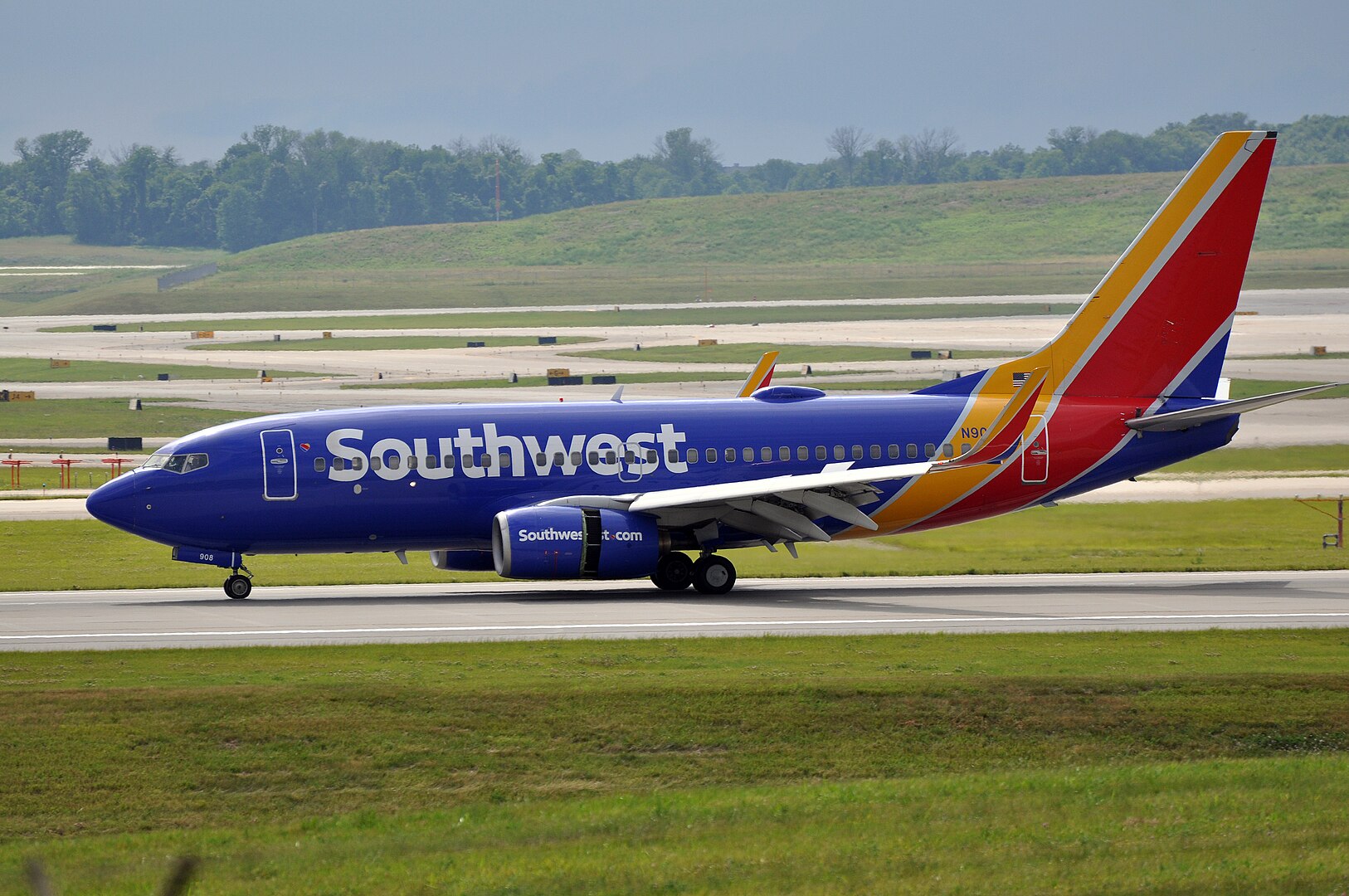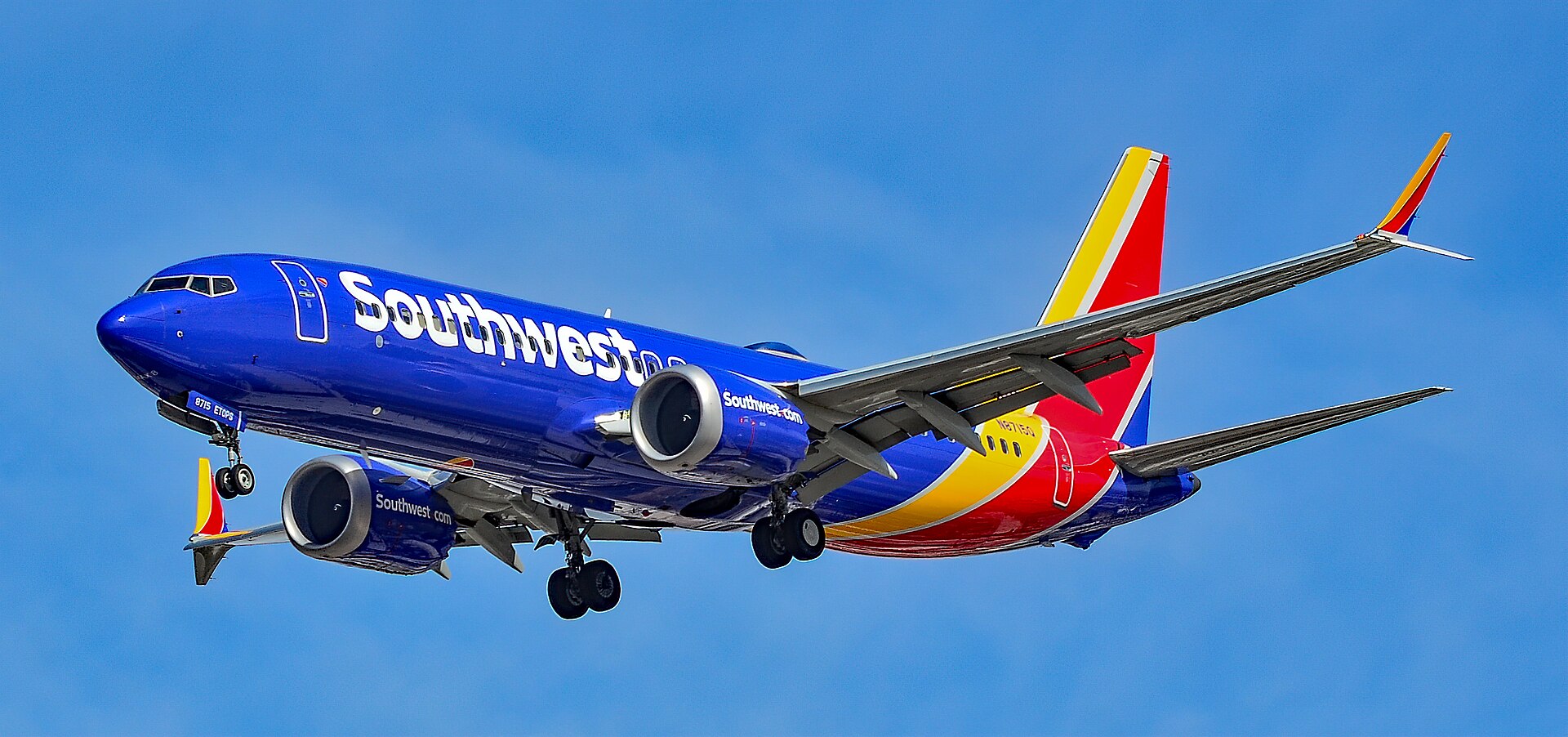Southwest Airlines has long been celebrated for its customer-friendly policies, notably the “Bags Fly Free” perk that distinguished it from competitors. However, as of May 28, 2025, this hallmark policy has been retired. Passengers now face fees of $35 for the first checked bag and $45 for the second, aligning Southwest with other major U.S. carriers. While the move aims to boost revenue, it risks eroding the brand loyalty that Southwest has cultivated over the decades. This significant change prompts a closer look at the potential repercussions for the airline.
Changes to Southwest Airlines Baggage Fees

1. Eroding a Competitive Advantage
Southwest’s free baggage policy was more than a customer perk; it was a strategic differentiator in a crowded market. By eliminating this benefit, the airline relinquishes a unique selling point that attracted cost-conscious travelers. Now, with baggage fees mirroring those of competitors like Delta and United, Southwest may struggle to justify its value proposition. This shift could lead potential customers to reconsider their options, especially when price and service offerings are comparable. The loss of this edge may have long-term implications for market share.
2. Impact on Customer Loyalty
The introduction of baggage fees has sparked discontent among Southwest’s loyal customer base. Many travelers choose Southwest specifically for its transparent pricing and absence of hidden fees. The new charges may be perceived as a betrayal of the airline’s customer-first ethos. This sentiment is reflected in declining brand perception metrics, with value scores dropping significantly following the announcement. Maintaining customer trust will be a critical challenge moving forward.
3. Operational Challenges Ahead
Beyond customer sentiment, the policy change may introduce logistical hurdles. Anticipating increased carry-on luggage as passengers avoid fees, Southwest faces potential delays during boarding and deplaning. To mitigate this, the airline is investing in technologies like AI-driven lobby management tools and larger overhead bins. However, the effectiveness of these measures remains to be seen. Operational efficiency, a cornerstone of Southwest’s success, could be compromised if these challenges aren’t adequately addressed.
4. Financial Pressures and Strategic Decisions
The decision to implement baggage fees is partly driven by financial pressures, including rising operational costs and investor demands. Activist investors have urged Southwest to enhance profitability, leading to several strategic shifts. While the new fees may generate additional revenue, there’s a risk that customer attrition could offset these gains. Balancing financial objectives with customer satisfaction is a delicate endeavor. The long-term success of this strategy will depend on Southwest’s ability to navigate these competing priorities.
5. Reevaluating Brand Identity
Southwest’s brand has been synonymous with simplicity, affordability, and customer care. The recent policy changes, including the introduction of baggage fees and the planned shift to assigned seating, signal a departure from this identity. Such transformations may confuse or alienate customers who valued the airline’s traditional approach. Rebranding efforts will need to clearly communicate the rationale behind these changes and how they benefit passengers. Maintaining a coherent and appealing brand image is essential in retaining customer loyalty.
6. Customer Segmentation and Service Tiers
To soften the blow of new fees, Southwest offers exemptions for certain customer segments. A-List Preferred members and Business Select passengers continue to enjoy two free checked bags, while A-List members and Rapid Rewards credit cardholders receive one. This tiered approach aims to reward loyalty and encourage higher spending. However, it also introduces complexity into what was once a straightforward pricing model. The success of this strategy will depend on clear communication and perceived value among different customer groups.
7. Market Response and Competitive Dynamics
Competitors are closely watching Southwest’s policy changes, with some seizing the opportunity to differentiate themselves. For instance, Frontier Airlines has launched promotions emphasizing free carry-on bags and seat selection. Such moves could attract disillusioned Southwest customers seeking alternatives. The competitive landscape may shift as airlines adjust their offerings in response to Southwest’s new direction. Staying attuned to market dynamics will be crucial for Southwest to maintain its position.
8. Long-Term Implications for the Airline Industry

Southwest’s policy shift reflects broader trends in the airline industry, where ancillary fees have become a significant revenue source. As airlines seek to unbundle services, customers face a more complex and potentially costly travel experience. Southwest’s move may set a precedent, encouraging other carriers to reevaluate their own policies. Conversely, it could also prompt a backlash, with travelers demanding more transparent and inclusive pricing. The industry’s trajectory will depend on how airlines balance profitability with customer satisfaction.
Navigating the Skies Ahead
Southwest Airlines’ decision to end its “Bags Fly Free” policy marks a significant turning point in its operational and brand strategy. While the move aims to enhance financial performance, it carries risks that could impact customer loyalty and market positioning. The airline’s ability to manage these changes effectively will determine its success in a competitive and evolving industry landscape.
How do you feel about Southwest Airlines’ new baggage fees? Will this change influence your travel choices? Share your thoughts in the comments below!
Read More
How Summer 2025 Travel Costs Compare to Pre-Pandemic Prices
12 Travel Deals That Turned Out to Be Scams
The post No More Free Bags? Why This Could Be A Costly Mistake For Southwest Airlines appeared first on Grocery Coupon Guide.







